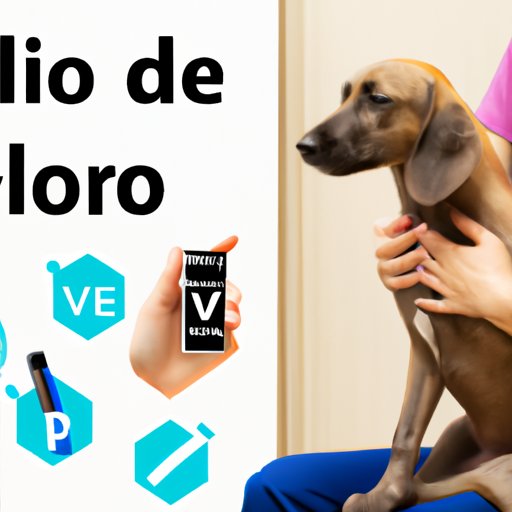Introduction
Canine parvovirus (CPV or parvo) is a highly contagious virus that affects dogs. It is most commonly spread through contact with infected feces, but can also be spread through direct contact with an infected animal or contaminated objects such as food bowls. Symptoms of parvo include vomiting, diarrhea, weight loss, and lack of appetite. If left untreated, parvo can be fatal.
Limiting Access to Outdoor Areas
When caring for a dog with parvo, it is important to restrict their access to outdoor areas and public places. This will help prevent the spread of the virus to other animals. Keep your dog on a leash when walking them and make sure they do not come into contact with other animals. If possible, avoid taking your dog to parks, pet stores, and other public places where they could come into contact with other animals.
It is also important to ensure that any areas where your dog has been are thoroughly cleaned and disinfected. This includes bedding, toys, and any other items that may have come into contact with your pet. Disinfecting these items will help prevent the spread of the virus.
Vet Visits
Taking your dog to the vet for regular checkups is essential when caring for a dog with parvo. Your vet can monitor your pet’s condition and provide treatments if necessary. They can also provide vaccinations to help protect your pet from the virus.
Proper Nutrition
Providing a balanced diet for your dog is essential when caring for a dog with parvo. Make sure your pet is getting the nutrients they need to stay healthy. Adequate water intake is also important to help keep your pet hydrated and their immune system strong.
Isolation
When caring for a dog with parvo, it is important to isolate your pet from other animals. This will help prevent the spread of the virus. The length of time needed for the virus to clear will depend on the severity of the case, so it is important to follow your vet’s instructions.
Medication
Following your vet’s instructions for administering medication is essential when caring for a dog with parvo. Medications such as antibiotics and anti-nausea medications can help reduce symptoms and aid in recovery. It is important to follow your vet’s instructions and never give your pet any medication without consulting them first.
Conclusion
Caring for a dog with parvo can be difficult, but following the steps outlined above can help ensure your pet receives the best possible care. Limiting access to outdoor areas, keeping the environment clean and sanitized, providing regular vet visits, proper nutrition, isolating your pet, and administering medication can all help your pet recover from the virus. It is important to follow your vet’s advice and take all necessary precautions to ensure your pet’s health and safety.
(Note: Is this article not meeting your expectations? Do you have knowledge or insights to share? Unlock new opportunities and expand your reach by joining our authors team. Click Registration to join us and share your expertise with our readers.)
